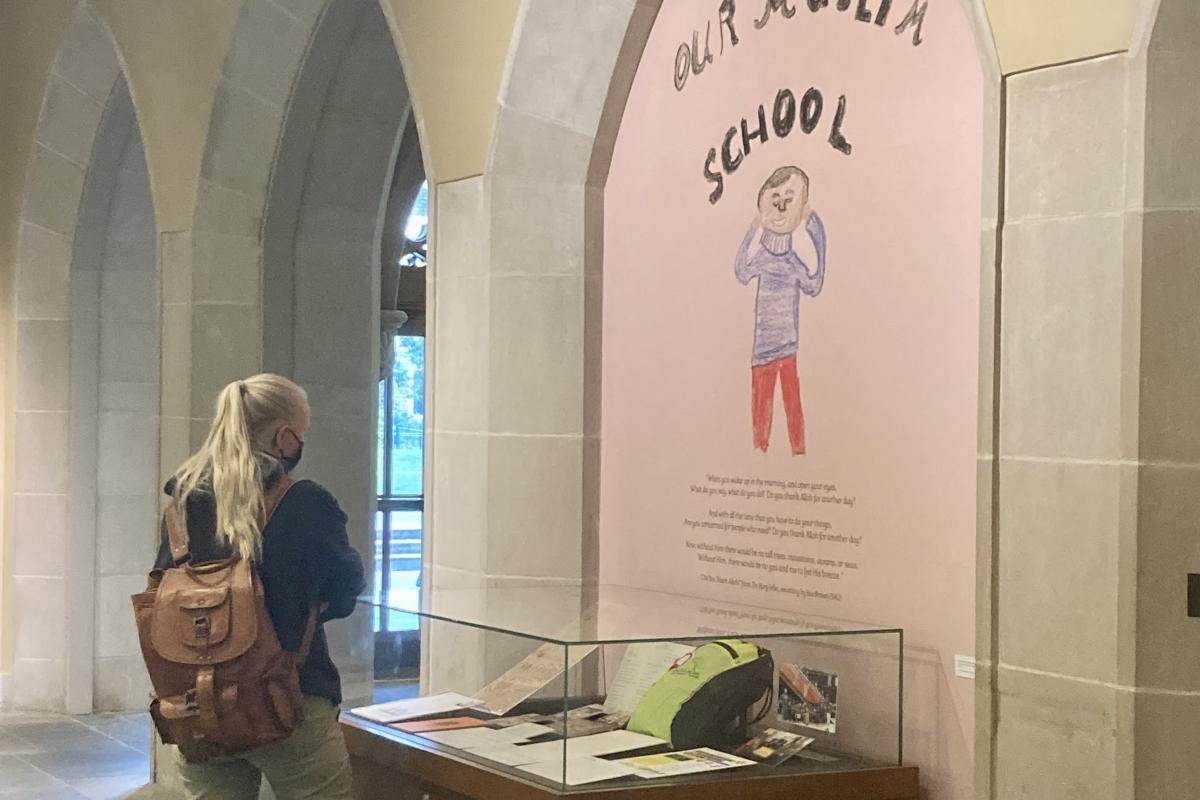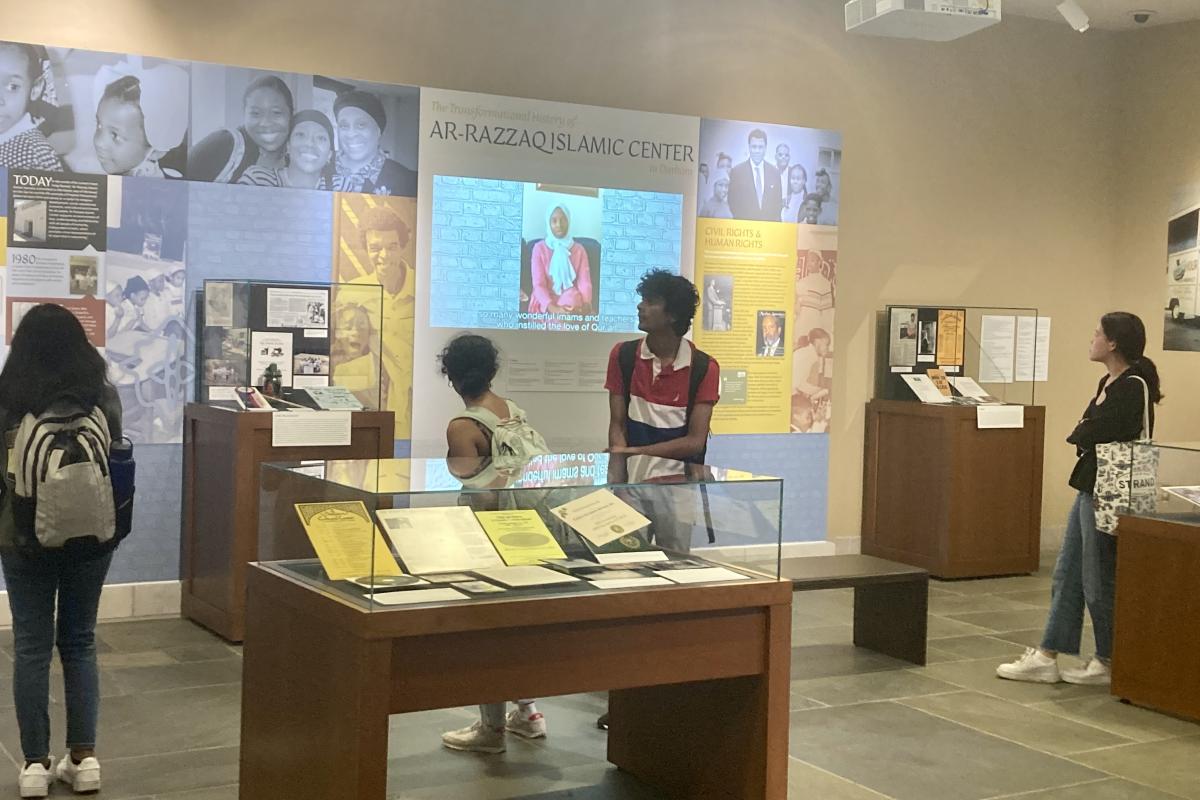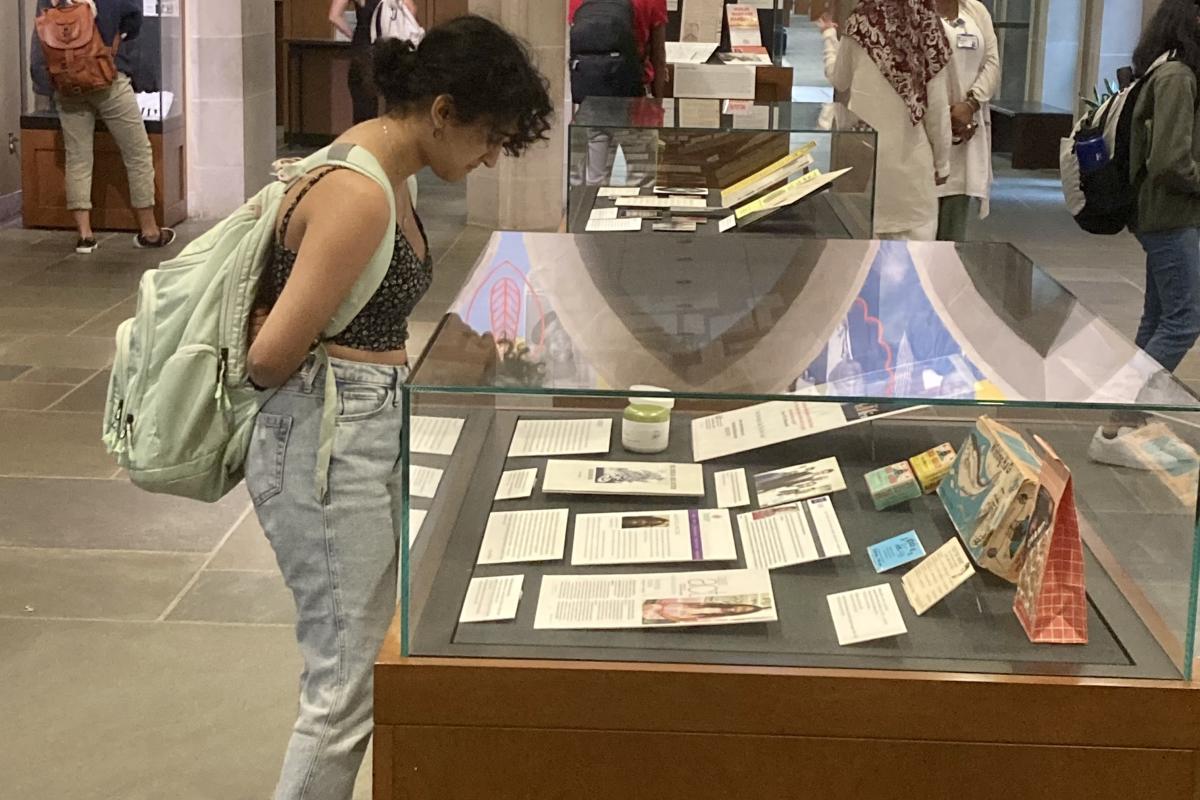الرزاق
Ar-Razzaq: Allah calls Himself Ar-Razzaaq— The Provider, The Bestower of Sustenance— on one occasion in the Quran. He is the One who creates all means of nourishment and provision.
Duke University’s Perkins Library currently features an exhibition entitled “The Transformational History of Ar-Razzaq Islamic Center in Durham.” This informational gallery highlights the development and importance of the Ar-Razzaq Islamic Center as an important hub in the struggle for human rights and civil rights in Durham since the 1960s. The exhibit aims to spotlight the decades-long struggle of this historic mosque to counteract structural racism in Durham. It focuses mainly on the center’s civic engagement, health, business, and education efforts.
To promote civic engagement, the Ar-Razzaq center established a 4-H club that created space for Muslim children to socialize while learning skills such as woodworking, tie-dying, lamp making, cooking, and sewing. The students went on to win many competitions in areas ranging from baking to science. For women, they held a Muslim Girls Training initiative where they taught Muslim women life skills. For men, the center created a program for African American Men Against Narcotics where men worked with police to promote “a better living environment for social, intellectual, economic, as well as spiritual development.” Young members of Ar-Razzaq were often encouraged to start businesses to serve their communities. This resulted in many economic initiatives, such as Muslim restaurants, food trucks, fish markets, and other businesses that thrived in Durham. Even well-known boxing champion, Muhammad Ali, visited multiple times, speaking at Durham Business College and promoting a Muslim brand of chocolate chip cookies. You’ll find examples of these products on display.
Finally, education has been integral to the vision of the Ar-Razzaq Islamic Center from its founding. Pioneer Clara Muhammad, established the University of Islam schools as an alternative to the public schools in the area. This system featured strong, black Muslim role models. To this day, an affiliated camp, Youth-N-Creation, exists to promote the beauty of God’s creation through science, technology, engineering, arts, and math.
Duke alumna, author, and member of the Ar-Razzaq center, Jamillah Karim, is quoted saying, “You cannot tell black history without telling American-Muslim history, and you cannot tell either history without women.” The development and struggle of this center, which Duke University hopes to uplift, should “inspire broader conversations in the search for more equitable social outcomes in the United States of America that offer hope for healing.”
Visit this exhibition to learn more in Perkins Library of Duke University until December 10, 2022.




